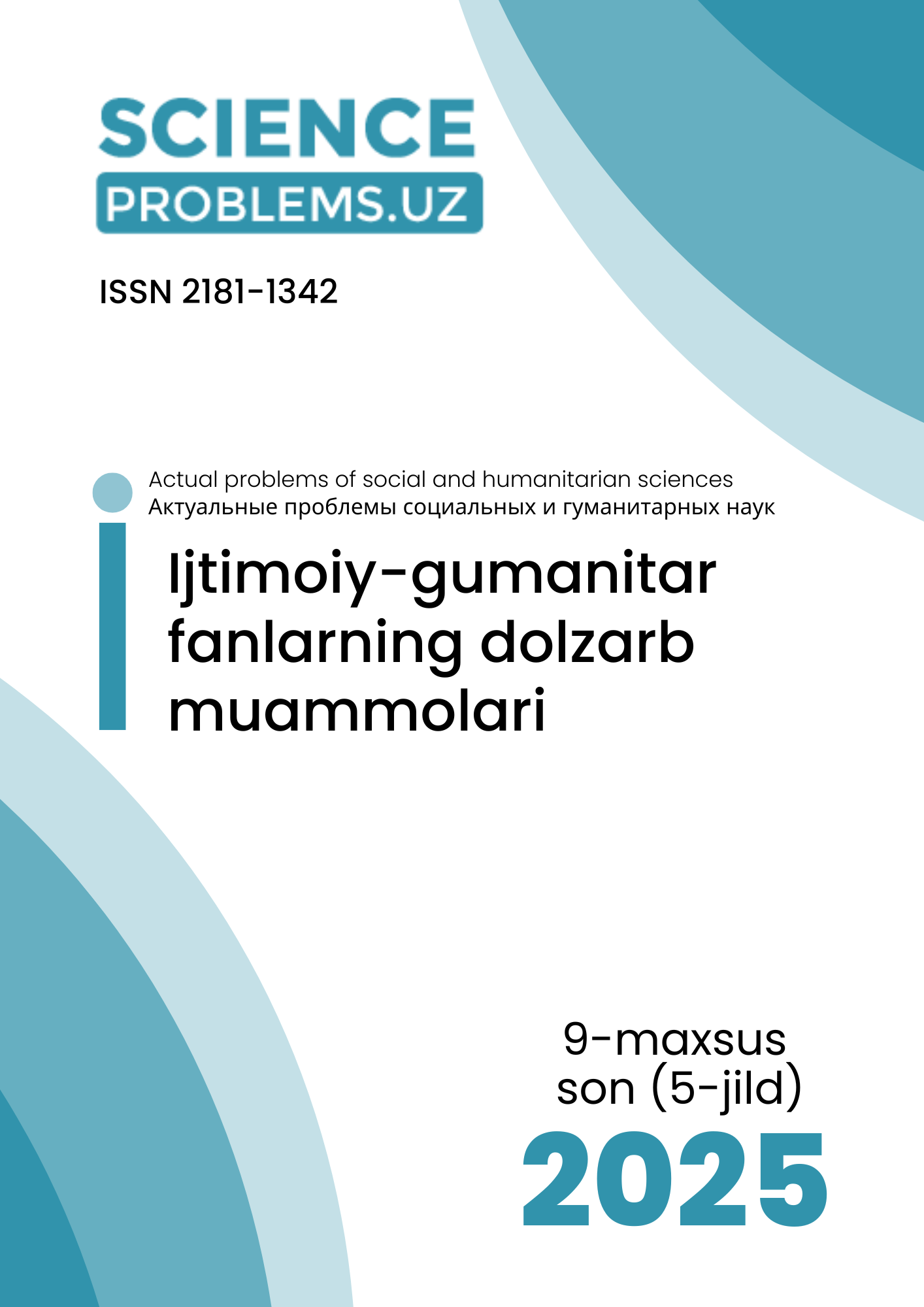THE INFLUENCE OF CONTEXTUAL FACTORS ON THE PERCEPTION OF THE PRAGMATICS OF APOLOGY IN ENGLISH AND UZBEK LANGUAGES
DOI:
https://doi.org/10.47390/SPR1342V5SI9Y2025N64Keywords:
Apology, pragmatics, context, intercultural communication, social factorsAbstract
This article analyzes the influence of contextual factors on the perception of the pragmatics of apology in English and Uzbek languages. Special attention is given to how social and cultural factors shape the ways apologies are expressed.
References
1. Austin, J. L. How to Do Things with Words. Oxford: Oxford University Press, 1962, pp. 25–26.
2. Blum-Kulka, Olshtain.E. “Requests and Apologies: A Cross-Cultural Study of Speech Act Realization Patterns.” Applied Linguistics, 5(3), 1984, pp. 196–213.
3. Brown P., & Levinson S. C. Politeness: Some Universals in Language Usage. Cambridge: Cambridge University Press, 1987, pp. 56-67.
4. Cohen A. D., Olshtain. E. Developing a Measure of Sociocultural Competence: The Case of Apology. Language Learning, 35(1), 1985, pp. 10–12.
5. Goffman E. Relations in Public: Microstudies of the Public Order. New York: Basic Books, 1971, pp. 134 -156.
6. Suslova I. Pragmatic Aspects of Apology in Uzbek: A Cross-Cultural Perspective. Tashkent: National University Press, 2015, pp. 45–47.








